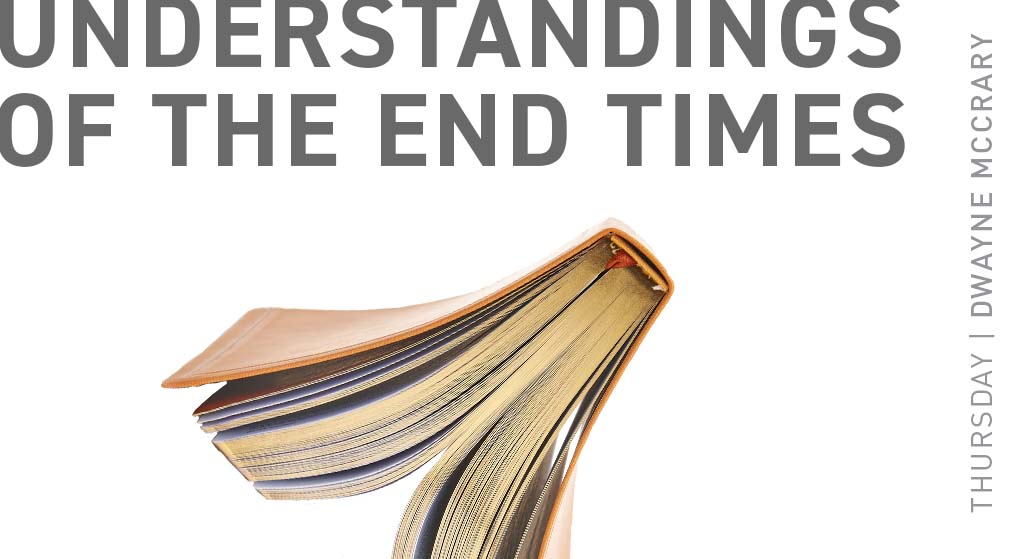Over the next few months, we will examine various passages in Daniel and Paul’s letters to the Thessalonians that point to the end times and the return of Jesus. As evangelical believers, we acknowledge the truth and reality that Jesus Christ will return to the earth a second time. The details of the second coming of Christ, however, are interpreted in varying ways, and these variations are typically expressed in one of four millennial views (listed alphabetically):
- Amillennialism—The thousand-year period referred to in Revelation 20:4-6 is a figurative description of the church age, the long period of time – but not literally 1000 years – between Christ’s first appearance on earth and His return. There will be no millennium (thus a-millennial) after Christ’s return but rather the judgment and establishment of the new heaven and new earth.
- Dispensational Premillennialism—Christ will remove His church prior to a period of great tribulation, after which He will return to earth and reign for a thousand years.
- Historical Premillennialism—Christ will return to earth in a cataclysmic event and reign for a thousand years.
- Postmillennialism—As the gospel advances and triumphs throughout the world, humanity will experience a golden age of a thousand years (either literal and/or symbolic). At the conclusion of this period, Christ will physically return to earth and the new heaven and new earth will be established.
The Baptist Faith and Message, 2000 includes this statement of agreement among Southern Baptist that leaves room for people who hold any of the four interpretations listed prior:
X. Last Things. God, in His own time and in His own way, will bring the world to its appropriate end. According to His promise, Jesus Christ will return personally and visibly in glory to the earth; the dead will be raised; and Christ will judge all men in righteousness. The unrighteous will be consigned to Hell, the place of everlasting punishment. The righteous in their resurrected and glorified bodies will receive their reward and will dwell forever in Heaven with the Lord.
Evangelicals and respected scholars have represented each view. The temptation is to make a person’s millennial view a test of faith, fellowship, or biblical authority. Instead of focusing on the differences, we can focus on points of agreement. We can all agree that Christ is coming back, that none of us knows the day and time, that heaven and hell are real places, that there will be judgment, and that Christ is the only way for salvation.
When we examine passages about the end of time, the day of the Lord, or the return of Jesus, we can expect people to present their perspectives on the timing. We can also help people focus on the hope presented in the passage, knowing that the promise of eternity enables us all to endure and persevere in this life.
